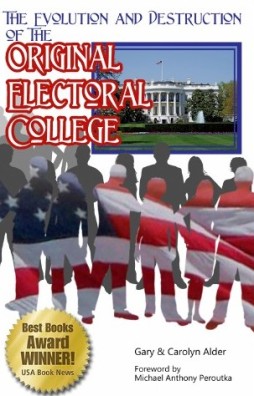Nature and Number – June 4
Number of Executives
Mr. Pinkney moved to resume the question “shall the blank for the number of the Executive be filled with a single person?” Mr. Wilson seconded.
Mr. Wilson was in favor of the motion. The opposing arguments from Mr. Randolph of Virginia had not convinced him. He felt that Mr. Randolph’s arguments were not as much against the measure as they were saying that the people would not approve of a single executive. Wilson did not see any evidence that the people were opposed to a single executive. “All know that a single magistrate is not a king.” He noted that none of the states had multiple executives. Three executives would only generate animosities and discord. In courts of justice there are only two sides to a question. In legislative and executive matters there are many sides. Each might have a different opinion and no two agree.
Nature of Executive
Mr. Sherman concurred that a single executive was in place in the States and should be so in the Federal Government. He noted that a council of advice was in place in all States as well as in Great Britain without which the first magistrate could not act.
Mr. Williamson asked Mr. Wilson if he intended to annex a Council to the executive.
Mr. Wilson did not want a council saying that it usually covers rather than prevents malpractices.
Number of Executives
Mr. Gerry saw no benefit in having three executives and thought it would be difficult in military matters. “It would be a general with three heads.”
VOTE – on Single Executive
Yes
Nature of Executive
The clause of the proposition relating to a Council of Revision discussed.
Mr. Gerry felt that the judiciary should not play a part in the council. Since they judge the law they should not be a part of making the law. He moved to postpone discussion of the clause in order to propose “that the National Executive shall have a right to negative any Legislative act which shall not be afterwards passed by ________ parts of each branch of the national Legislature.”
Mr. King seconded the motion, observing that the Judges ought to be able to expound the law as it should come before them, free from the bias of having participated in its formation.
Mr. Wilson thought neither the original proposition nor the amendment went far enough. He felt that the executive in combination with the judicial should have a veto that could not be overridden.
Discussion on council postponed.
Discussion of Mr. Gerry’s proposal
Mr. Wilson and Mr. Hamilton did not want to let a super-majority of the legislature override a veto.
Mr. Gerry did not see a necessity of so great control over the legislature as an executive veto. He thought the legislature woulds be composed only of the best men.
Dr. Franklin related some executive abuses of veto power in the proprietary government of Pennsylvania.
Mr. Sherman was against enabling any one man to stop the will of the whole.
Mr. Madison supposed that if a proper proportion of each branch of the legislature was required to override the veto it would serve as well as an absolute veto by the executive.
Mr. Wilson felt that the veto power would seldom be used. Requiring a 2/3 majority to override would work unless the executive and legislative branches were at war with each other. If it came to that, the executive could not defend himself.
Mr. Butler said that if he had considered giving an absolute veto to the executive he would not have been in favor of a single person as executive.
Mr. Bedford wanted the Constitution to set the boundareies of legislative authority and was opposed to any additional check on the legislature even the Council of Revision.
Col. Mason feared that the executive would use a threat of veto as a bargaining tool for bribery or to get his appointments approved. He thought it would lead to an elective monarchy.
Dr. Franklin expounded in detail about the case of the Netherlands mentioned previously. He concluded by saying:
The first man put at the helm will be a good one. No body knows what sort may come afterwards. The Executive will be always increasing here, as elswhere, till it ends in a Monarchy.
VOTE – to give Executive an Absolute Veto
No (Unanimous)
Mr. Butler moved that the resolution be altered to give the national executive power to suspend legislation.
Mr. Gerry observed that the power of suspending would do all that is wrong with stopping good laws without stopping bad ones.
VOTE – to give Executive Power to Suspend
No (Unanimous)
VOTE – to Allow 2/3 of both Houses to Override Veto
Yes (The blank was filled with 2/3)
VOTE – to Allow Veto by Executive Only
Yes (No Council of Revision)
– Revisionary Council (Veto) Revisited


